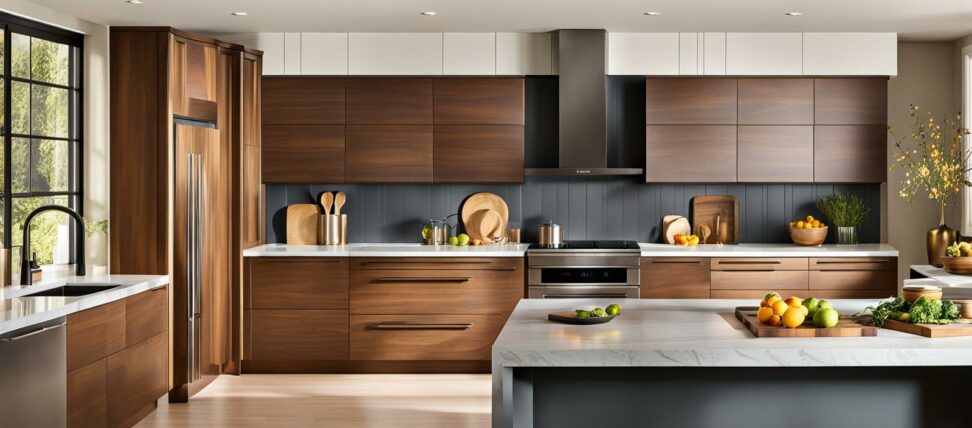Modernize Your Kitchen With Transitional Cabinet Hardware
Is your kitchen looking a little dated but you're not ready for a full-on contemporary remodel? The transitional design style may be just what you need. Transitional kitchens bridge traditional and modern elements for a timeless, refined look. One of the easiest ways to bring a kitchen into the transitional style is by updating the cabinet hardware. New knobs, pulls, and handles can give cabinets a facelift without the need for a full replacement. Let's explore the wonderful world of transitional kitchen cabinet hardware to find options that will modernize your space!
Transitional kitchens focus on clean lines, neutral tones, and subtle hints of ornate detailing. The hardware should enhance the airy, uncluttered aesthetic. Fortunately, there are so many beautiful options to choose from. Incorporating the right knobs, pulls, and handles will help strike that perfect balance between classic and contemporary.
Choosing Transitional Cabinet Hardware
When selecting hardware, it's important to consider the different types available and which will work best for your transitional kitchen. Let's go over the basic options:
Types of Cabinet Hardware
Knobs are circular handles installed vertically on cabinets and drawers. They add accent points and focus. Pulls are long handles mounted horizontally across doors or drawers. They help tie cabinets together into a cohesive look. Other transitional hardware includes streamlined hinges , unobtrusive wire pulls , and simple drop pulls .

Finishes for Transitional Style
Transitional kitchen hardware looks best in muted metallic finishes that subtly enhance the cabinetry without stealing the show. Popular choices include:
- Brushed nickel - A warm silver with a subtly brushed texture
- Oil-rubbed bronze - A dark antique bronze finish
- Matte black - A classic deep black with a non-reflective finish
Avoid very shiny finishes like polished chrome or brass. The goal is for the hardware to blend in, not stick out. Warm metallics help achieve the refined yet understated transitional look.
Size and Spacing
Scale and placement impact the overall aesthetic, so pay attention to the details. Allow 2-3 inches clearance around knobs and pulls so they don't bump into each other. Larger drawers and doors may need slightly bigger hardware. Place pulls 3-5 inches from the top edge of doors and drawers. Knobs generally go aligned with bottom door rails. Mark locations carefully and measure twice before drilling any new holes.
Styles That Work With Transitional
Look for simple, streamlined hardware without too much ornamentation. Some top options include:
- Bar pulls - Long front-to-back pulls with a clean, minimalist look
- Cup pulls - Simple semicircular pulls sized for drawers
- Bin pulls - Wide rectangular pulls for deep drawers
- Faceted knobs - Cut geometric shapes like squares, rectangles, diamonds
- Round or square knobs - Less ornate than decorative antique style knobs
Hardware Combinations to Try
Put together eclectic combinations of knobs, pulls, and finishes to create depth and interest. Here are some suggestions:
Mix Knobs and Pulls
Using knobs and pulls together adds great visual texture. Try consistent finishes like matte black knobs and pulls throughout. Vary the shape of knobs across upper and lower cabinets for subtle interest.
Tone-on-Tone Hardware
Choose hardware in the same color family to create a streamlined look. Using different metal textures like brushed nickel cups pulls and satin nickel bar pulls keeps the palette cohesive while adding contrast.
Coordinating Metals
Pair warm and cool metals for a livelier combo. Black base cabinets with brass knobs pops against white uppers with brushed nickel hardware. Lean into material contrast for great effect.
Dark Hardware on Light Cabinets
For a bold look, pair dark hardware with light cabinets. Matte black pulls on white cabinets makes each door pop. Use restraint so the look stays refined and doesn’t get too industrial.
Installation Tips and Tricks
Installing new hardware sounds simple but doing it properly ensures your new knobs and pulls enhance your space as intended. Follow these tips for a foolproof installation:
- Carefully measure and mark new hardware locations with a pencil.
- Remove old hardware then fill any unused holes with wood filler.
- Drill pilot holes for each new knob and pull using the correct drill bit size.
- Attach new hardware with screws designed for your cabinet’s material - wood, MDF, metal, etc.
- Use a level to check alignment and tighten pulls evenly. Adjust angles if needed.
Take your time, measure everything twice, and don't force screws to avoid cracking cabinet surfaces. New transitional hardware can completely transform your space when installed thoughtfully.
Shopping for Transitional Hardware
The transitional style is trendy, so there are lots of options to peruse. Excellent places to shop include:
- Online retailers like Wayfair, Amazon, and DecorPlanet
- Home improvement stores like Lowe's and Home Depot
- Local hardware stores or boutique kitchen design shops
- Pinterest - Great for discovering styles and finishes
Browse the selections to get a feel for the range of transitional cabinet hardware available. Narrow choices by finish and style to hone in on the perfect options for your kitchen. Order a few samples to view in person before committing.
The right transitional hardware can utterly transform your kitchen's aesthetic. Visually lighter knobs and pulls make the whole room feel more airy and modern. Neutral metallic finishes like brushed nickel and oil-rubbed bronze warm up the space without going over the top. Clean lines with just a touch of detail create that perfect bridge between traditional comfort and contemporary minimalism.
Transitional kitchens may seem simple, but they require thoughtful detail. Pay close attention to the subtleties when selecting hardware. Mix up knobs and pulls, play with different shapes and textures, and lean into contrast for a layered look. Installing your chosen hardware with care ensures it elevates your kitchen as intended. The end result is a culinary space both timelessly classic and subtly refined. Who could ask for more?